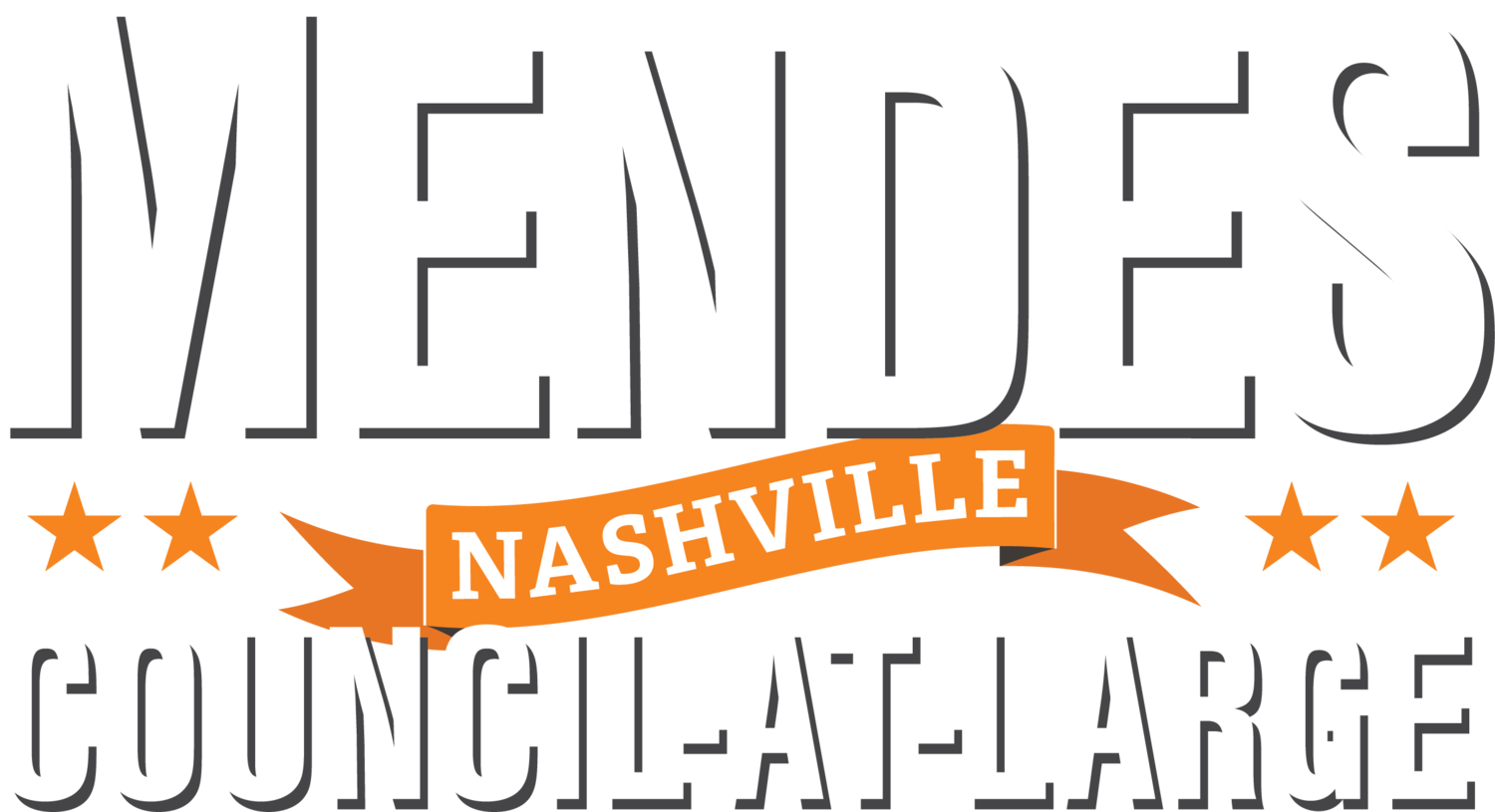Dedicated stadium funding limits future transit spending
Over the weekend, a transit advocate took me aside to tell me that the funding plan for the proposed football stadium will eliminate a funding source for transit. I think they are right.
In December 2017, when the Barry administration released the funding plan for their proposed Let’s Move Nashville transit plan, one of the funding sources was to raise the countywide hotel occupancy tax in increments from 6% to 6.625%. There was discussion at the time about how this hotel tax increase would give Nashville an effective hotel tax rate that would trail only Atlanta among large markets. When the transit referendum failed in May 2018, the hotel tax increase did not go into effect. My transit advocate friend reminded me that Nashville will still need dedicated funding for transit at some point in the future.
The proposed new football stadium will soak up this additional hotel occupancy tax and more. If approved, the football stadium funding plan will require a 1% increase — from 6% to 7%. This will generate a lot of money. The Mayor’s Office has projected that the new 1% of hotel tax will generate approximately $913 million over 30 years. That’s about one-third of the $2.9 billion of tax revenue captured to pay for the stadium project during that time.
The administration regularly calls hotel occupancy tax “free” to Nashville taxpayers. But this reminds us what economists teach — collecting and spending taxes is never free to taxpayers. If nothing else, a tax dollar spent on one project (like a football stadium) is a tax dollar that is not available for another project (like transit). Life is about choices and the current football stadium plan is a choice to spend new hotel occupancy tax revenue on football instead of transit.
Links to my previous stadium comments here.
_____________________________________________
A FEW EXTRA THOUGHTS —
I was reminded of several things when researching the facts for this post.
According to the most recent hotel tax study by HVS Global Hospitality Services, Nashville has the 7th highest effective tax rate on tourists — at 16.32%. That include sales tax (9.25%), hotel occupancy tax (6%), special district taxes, and excise tax charged on downtown hotel rooms. If we add the new 1% in hotel tax for the football stadium, the total effective rate will climb to 17.32%, which would be the 4th highest in America.
Under state law, cities cannot charge unlimited hotel occupancy tax. I might not exactly have this straight, but I think:
The baseline is that Metro can charge 6% in hotel occupancy tax. When that’s added to sales tax and other charges, that’s what gets the effective rate on hotel rooms up to 16.32%.
For transit, if approved by a referendum, state law would allow Metro to add an additional hotel occupancy tax surcharge so long as the total taxes (sales, excise, everything) on a hotel room don’t climb over 20%.
For football, if approved by the Council, state law allows Metro to add an additional 1% (up to 7% total) on the hotel tax.
The takeaway is that we are close to maxing out hotel occupancy as a revenue source.
I have been bothered that the current administration has slow-walked releasing details about how the captured $2.9 billion in taxes will be spent. They are scheduled to finally release that later today. In looking back at the transit plan details, for comparison, Mayor Barry released a detailed financing plan on December 12, 2017. I was invited to meet privately with the Goldman Sachs investment bankers who created the plan on January 11, 2018. The final vote didn’t happen until February 6. It’s inappropriate that this administration hasn’t released the financing plan about how the captured tax money will be spent before now.
I know that then-Councilmember Cooper also had the opportunity to sit down with the Goldman Sachs team too. Based on our respective meetings, John and I both felt that the referendum language should disclose both that the purchase price for the transit system was $5.35 billion and also that it would cost $8.95 billion in revenue through 2032 to pay for it. John and I both thought it was important for taxpayers to know the price tag and the total amount that would be spent over time. He and I worked to get all five at-large members to sponsor an amendment to add the $8.95 billion number to the referendum language.
Our amendment was on the agenda for the Council’s February 6, 2018, meeting. I had forgotten until I reviewed the video today, but how that debate played out is ironic now. The Vice Mayor called on John because he was the lead sponsor of the amendment. John stood up, mentioned that all five at-large members were supporting the amendment, and then he deferred the rest of his time to me to make the actual argument about why both numbers were important. Times have changed.
